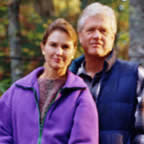3. Be Informed
 Maintain a Healthy State of Mind
Maintain a Healthy State of Mind
Adults
 In the current climate of tension around terrorist attacks and other disasters, people may often react to such events with increased stress, a sense of uneasiness, and a variety of behavior changes. Some people may change who they will talk to or trust. Others may change where they travel or how they spend money. Sometimes feelings of rage arise that can lead to violence. Reactions like these can upset a person, as well as family and community life. Being prepared is the best way to reduce the effects on people of catastrophic events, whether or not they are directly experienced.
In the current climate of tension around terrorist attacks and other disasters, people may often react to such events with increased stress, a sense of uneasiness, and a variety of behavior changes. Some people may change who they will talk to or trust. Others may change where they travel or how they spend money. Sometimes feelings of rage arise that can lead to violence. Reactions like these can upset a person, as well as family and community life. Being prepared is the best way to reduce the effects on people of catastrophic events, whether or not they are directly experienced.
What can I do to prepare myself?
You can do several things now to prepare for and be ready to respond to catastrophic events. These suggestions can benefit you and help you assist others.
- Make a plan for yourself and those with whom you live. Prepare a disaster supplies kit. Read the American Red Cross publication "Preparing for Disaster" for more details.
- Review your options so you have made decisions about what to do before something unexpected happens.
- If you have children, read the section for parents and caregivers to learn how to help them prepare for and handle a disaster.
- If you live alone, maintain social ties with coworkers, friends, and family members. Keep their contact information with your other disaster supplies and equipment.
- Keep a spare pair of glasses and extra medicine handy in case you need to leave quickly.
- Learn about preparedness plans in your town and workplace. Contact your local emergency management agency.
- Know your neighbors and how to get in touch with them.
- Keep important documents in a safe, accessible place in case you need to leave your home.
- Learn more about stress—what it does, how you respond to it, and ways to deal with it. (See CDC's "Disaster Mental Health Resources.")
Acts of terror can have an additional impact because they are:
- Unexpected
They seem random and often come without warning, which can make us feel unsafe; - Unfamiliar
Most people have no experience of them. This can make us feel vulnerable; - Uncontrollable
We are unable to manage or govern such events and acts.
These aspects of terrorism can increase people's fear and stress. Preparation for such events is similar to other disasters; following the previous suggestions can increase your confidence for managing most situations.
How will I react to an extreme event?
People vary in how they respond to disasters. Knowing beforehand what common reactions may occur can improve your ability to cope when such event happen. Accept your own reactions and support those of people around you. Realize that different responses may occur at different times. You may have experienced some of the reactions below during other stressful times.
Common reactions to extreme events include:
- Shock, numbness and disbelief;
- Difficulty concentrating at work or at home;
- Eating too much or too little;
- Smoking/drinking more than usual or misusing drugs;
- Problems falling or staying asleep; having nightmares;
- Re-occuring and unwanted thoughts about what happened;
- Fear about your safety; the safety of your children, spouse, parents and pets; and about losing treasured possessions;
- Grief
- Upsetting images, thoughts and feelings about the event. This can happen suddenly or because something (such as an odor, sound or sight) reminds you of the event;
- Anger, short temper and increased suspicion of others that may lead to more arguing or fighting;
- Feeling guilty, ashamed or helpless;
- Feeling restless, anxious, uneasy or worried;
- Physical reactions, such as headaches, body pains, stomach and bowel problems and skin rashes. Chronic health problems can get worse;
- Frequently changing and intense moods.
- Inability to manage feelings.
For most people, painful emotions, physical reactions and distressing thoughts are temporary; many reactions diminish within a few weeks after the disaster is over.
If a catastrophic event occurs, how can I help myself and others?
Immediately during or after a disaster, it is important to protect yourself from harm and additional exposure to the trauma. If directly involved, move away from continuing danger, destruction and dead bodies. Limit your exposure to media coverage of the event.
In addition, you can:
- Get your supplies kit and use your plan.
- Take care of your immediate and ongoing physical needs.
- Get exercise, rest, drink plenty of water and eat healthy meals whenever you can.
- Return to your daily routines whenever and wherever possible.
- Recognize people's strengths, including your own, as well as their suffering.
- Share your experiences when you are ready to do so.
- Spend time with other people.
- Remind yourself of your strengths.
- Reflect on how you have dealt with problems in the past.
- Ask for help when you need it.
- Remind yourself that in time, distressing feelings will fade.
- Find opportunities to unwind.
- Allow others to spend time by themselves. Spend time by yourself if that helps.
- Mark the event in a symbolic way,such as a service or memoroial, alone or with other people.
How will I know if I need help?
Experiencing a disaster can leave people feeling like life will never be the same. You may try lots of ways to feel better, yet still be unable to return to feeling comfortable. If things aren't going well after several weeks, you may want to seek professional help. Talk to a professional at any point in time if you feel that you are having difficulty with your recovery.
You will know that you are on your way to recovery when:
- Your suffering has lessened.
- You are able to concentrate on work or family and do things you used to enjoy.
- You are able to resume caring for your family and complete daily tasks.
- You are engaging in reasonable and appropriate use of:
- Alcohol or cigarettes
- Recreational drugs
- Prescribed medicines.
- Cars and other vehicles
- Your appetite and sleep patterns are not of concern
- You are able to manage your anger and avoid fights
- You are staying well instead of getting sick
How do I get the help I need?
Asking for support may sometimes feel uncomfortable; however seeking the assistance you need can help you cope better. Sources of assistance could include:
- A health care provider.
- A pastoral care counselor.
- A mental health professional.
- Your employer's Employee Assistance Plan (EAP), if they have one.
- Your city health center.
- The local mental health clinic.
- Local hot lines.
- Mental health specialty and advocacy groups.
- Mental health associations.
Online resources
 For more information about how to cope with terrorism, visit the following:
For more information about how to cope with terrorism, visit the following:
- American Psychological Association
- American Red Cross
- Department of Health and Human Services (DHHS), Disasters and
Emergencies Index - Department of Veterans Affairs, National Center for Post Traumatic
Stress Disorder - National Institute of Mental Health (NIMH)
- National Mental Health Association
- Substance Abuse Mental Health Services Administration (SAMHSA)
- Uniformed Services University Medical School, Center for the Study of Traumatic Stress
For more information for parents, caregivers, and teachers, visit the following:
- American Academy of Child and Adolescent Psychiatry
- American Psychiatric Association
- Federal Emergency Management Agency (FEMA)
- National Child Traumatic Stress Network
- Substance Abuse and Mental Health Services Administration (SAMHSA)
- U.S. Department of Education, Office of Special Education and Rehabilitation Services
For information about emergency preparedness and response, visit the following:
- RAND, Individual Preparedness and Response to Chemical, Radiological, Nuclear, and Biological Terrorist Attacks
For information about how to create a family plan, visit the following:
This information is provided by the American Red Cross and the Centers for Disease Control and Prevention (CDC).
- Page last updated September 4, 2007
- Content source: CDC Emergency Communication System (ECS), Division of Health Communication and Marketing (DHCM), National Center for Health Marketing (NCHM)
Get email updates
To receive email updates about this page, enter your email address:
Contact Us:
- Centers for Disease Control and Prevention
1600 Clifton Rd
Atlanta, GA 30333 - 800-CDC-INFO
(800-232-4636)
TTY: (888) 232-6348
24 Hours/Every Day - cdcinfo@cdc.gov

